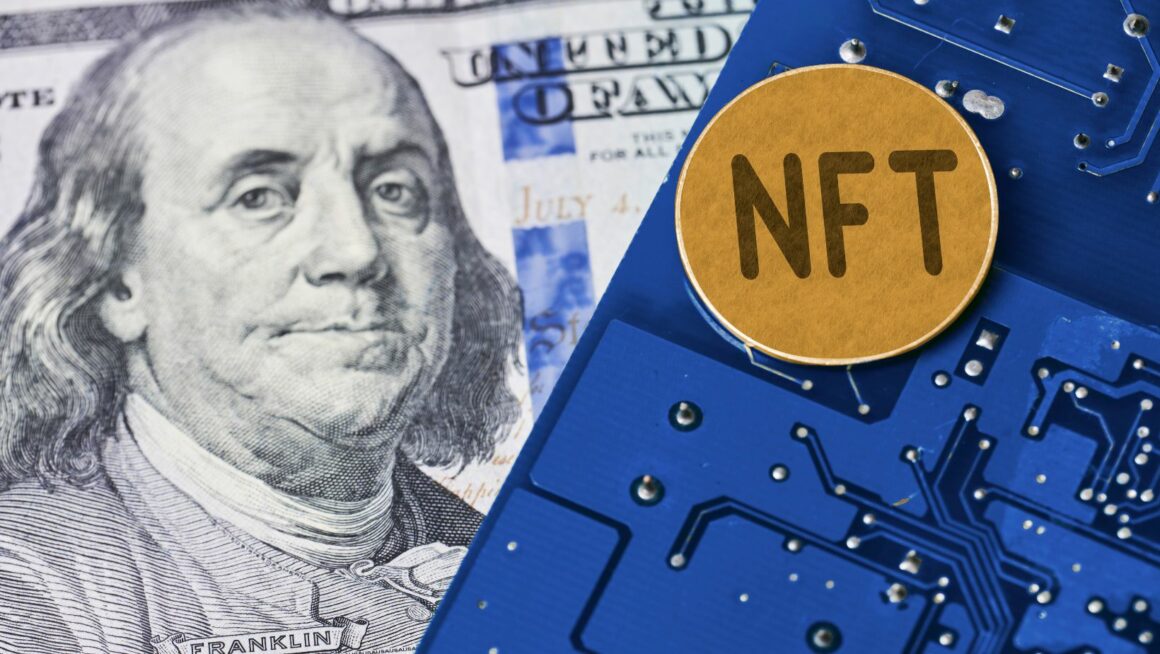Distributed ledger technology, or blockchain for short, has been applied to many facets of the tech industry. The most popular form of this application is cryptocurrency trading. By using a public ledger, it became possible to replace middlemen with decentralized platforms and benefit from lower fees and more convenience than traditional options like credit cards.
However despite these initial successes in finance there have not yet been any real-world uses found for blockchain outside of digital assets such as cryptocurrencies and shares on stock markets. This seems highly unlikely given that we now see countless developments in games thanks to new technologies including virtual reality headsets and even mixed reality devices which blend computer generated worlds with our own physical world through augmented vision glasses
With all the potential use cases left unexplored by blockchain projects so far it’s hard to predict what will happen next — but one thing is certain; gaming stands out as one area where distributed ledgers could be particularly useful in reshaping how we play today
The “what is nft art” is a question that has been asked many times in the past. NFTs are an alternative form of cryptocurrency, and they are winning out over traditional DeFi. The rest of the world remains unchanged.
The Financial Action Task Force (FATF) has issued its long-awaited virtual asset advice, setting out principles that have the potential to transform the crypto business in the United States and throughout the globe. The guideline tackles one of the crypto industry’s most pressing challenges: persuading regulators, politicians, and the general public that it does not aid money laundering.

Decentralized financing (DeFi), stablecoins, and nonfungible tokens are among the aspects of the crypto business that have lately caused substantial regulatory ambiguity, according to the guidelines (NFTs). The recommendation substantially mirrors the United States’ evolving attitude to DeFi and stablecoins. The FATF seems to be less harsh regarding NFTs, and arguably argues for a presumption that NFTs are not virtual assets, which is a good for the business. Members may control NFTs if they are used for “investment objectives,” according to the advice. This advice is expected to add gasoline to the NFT rally that has been going on for the remainder of 2021.
The FATF’s proposed advice on DeFi focuses on compliance.
Defining virtual asset service providers in a broader sense
The Financial Action Task Force (FATF) is an international body tasked with developing rules to fight money laundering and terrorist funding. While the FATF cannot enact enforceable legislation or policy, its recommendations have a considerable impact on anti-terrorist funding and anti-money laundering (AML) legislation in its member countries. One of the government agencies that typically follows and implements rules based on FATF guidelines is the United States Department of the Treasury.
In widening the definition of virtual asset service providers, the FATF’s much-anticipated advice adopts a “expansive approach” (VASPs). Exchanges of virtual assets for fiat currencies, exchanges of multiple forms of virtual assets, the transfer of digital assets, the safekeeping and administration of virtual assets, and participating in and providing financial services related to the offer and sale of a virtual asset are all included in this new definition.

Once a VASP is designated, it must comply with the applicable requirements of the jurisdiction in which it conducts business, which typically include implementing anti-money laundering (AML) and counter-terrorism programs, being licensed or registered with its local government, and being subject to that government’s supervision or monitoring.
The FATF defines virtual assets (VAs) in a wide sense:
“A digital representation of value that can be exchanged or transmitted via the internet and utilized for payment or investment.” “Digital representations of fiat currencies, securities, and other financial assets that are already covered elsewhere in the FATF Recommendations,” however, are not included.
The FATF’s definition of VAs and VASPs, taken combined, seems to expand AML, counter-terrorism, registration, and monitoring obligations to most crypto participants.
Effects on DeFi
The FATF’s recommendations on DeFi protocols is a little hazy. The FATF begins with the following statement:
“Under the FATF standards, the DeFi application (i.e., the software program) is not a VASP since the Standards do not apply to underlying software or technology…”
The advice doesn’t end there. Instead, the FATF adds that DeFi protocol founders, owners, operators, or those with significant control or influence over the protocol “may come within the FATF definition of a VASP when they are offering or actively enabling VASP services,” according to the FATF. Owners/operators of DeFi projects that qualify as VASPs are identified “by their link to the activities done,” according to the advice. These owners/operators may have enough power or influence on assets or the project’s protocol to make a difference. Even when it is “exercised via a smart contract or in certain circumstances voting procedures,” this influence may exist by keeping “an ongoing commercial connection between themselves and users.”
The FATF advises that regulators not simply accept assertions of “decentralization” but instead perform their own due diligence in accordance with this phrase. The FATF even suggests that if there is no company operating a DeFi platform, a jurisdiction might require that a VASP be set up as the obligated entity. In this regard, the FATF has made little progress in changing the regulatory status of most DeFi participants.
DeFi: Who, what, and how to regulate in a code-governed, borderless world?
Stablecoins are affected.
The organization’s earlier view that stablecoins — cryptocurrencies whose value is fixed to a store of value such as the US dollar — are subject to the FATF’s requirements as VASPs is reaffirmed in the new guidelines.

The advice covers key design aspects that increase AML risk and tackles the danger of “mass adoption.” The guideline specifically mentions “central governing bodies of stablecoins” as a VASP that “will, in general, be covered by the FATF criteria.” The FATF thinks that assertions of decentralized governance are insufficient to avoid regulatory scrutiny, based on its approach to DeFi in general. The FATF, for example, advises its members to “identify obligated entities and… minimize the associated risks… independent of institutional architecture and nomenclature” even when the governing body of stablecoins is decentralized.
The advise instructs VASPs to identify and understand the AML risk associated with stablecoins before to launch and on a continuous basis, as well as to manage and mitigate risk prior to launching stablecoin products. Finally, the FATF recommends that stablecoin providers apply for a license in the country where they do most of their business.
Regulators are on their way to stablecoins, but where should they begin?
NFTs are impacted.
NFTs have risen in popularity, alongside DeFi and stablecoins, and are now a fundamental component of the modern crypto economy. The FATF cautions that NFTs are “usually not regarded to be [virtual assets] under the FATF definition,” in contrast to its comprehensive approach to other elements of the crypto business. This may lead to the assumption that NFTs are not VAs and that their issuers are not VASPs.
Nonetheless, the FATF underlines that regulators should “examine the substance of the NFT and its purpose in reality, not what language or marketing phrases are utilized,” similar to its approach to DeFi. NFTs that are “used for payment or investment purposes,” according to the FATF, may be considered virtual assets.
While the recommendation does not define “investment intentions,” the FATF is likely to include anyone who purchase NFTs with the intention of selling them for a profit at a later date. While many purchasers buy NFTs because they have a personal connection to the artist or work, a sizable portion of the industry buys them for their potential to appreciate in value. While the FATF’s approach to NFTs seems to be less broad than its guidelines for DeFi or stablecoins, FATF member nations may use the “investment goals” phrase to enforce greater restrictions.
In this article, we’ll look into nonfungible tokens from a legal standpoint.
What Does the FATF’s Guidance Mean for Crypto?
The FATF recommendation closely mirrors US authorities’ tough position on DeFi, stablecoins, and other significant components of the crypto industry. As a consequence, both centralized and decentralized initiatives will be under growing pressure to adhere to the same anti-money laundering (AML) regulations as conventional financial institutions.
DeFi initiatives will continue to delve deeper into DeFi and experiment with novel governance structures such as decentralized autonomous organizations (DAOs) that approach “full decentralization,” as we’ve previously seen. Even this solution is not without danger, since the FATF’s broad definition of VASPs causes problems for smart contract signers and private key holders. Because signers may be classified as VASPs, this is especially relevant for DAOs.
Given the FATF’s broad interpretation of who “controls or influences” initiatives, crypto entrepreneurs will face a difficult battle not just in the United States, but also globally.
Jorge Pesok and John Bugnacki collaborated on this piece.
The writers’ views, ideas, and opinions are their own and do not necessarily reflect or represent Cointelegraph’s views and beliefs.
This article is meant to provide basic information only and should not be construed as legal advice.
Jorge Pesok is the general attorney and chief compliance officer of Tacen Inc., a renowned software development firm specializing in open-source, blockchain-based technologies. Jorge had substantial legal expertise before joining Tacen, assisting technological businesses, cryptocurrency exchanges, and financial institutions in front of the SEC, CFTC, and DOJ.
Tacen Inc.’s policy lead and legal clerk is John Bugnacki. John is a governance, security, and development specialist. His research and activity has centered on the critical junction of history, political science, economics, and other subjects in the production of effective analysis, conversation, and involvement.
Watch This Video-
Related Tags
- nfts art
- nft collectibles
- where do you buy nfts
Our Founder and Chief Enthusiast: With a background that’s a wild mix of tech enthusiasm, finance, and a short stint believing blockchain was a new martial arts technique, Matej is the heart and soul of TheBlockchainBrief.com. He’s got more passion for cryptocurrency than most people have for coffee, and that’s saying something.



